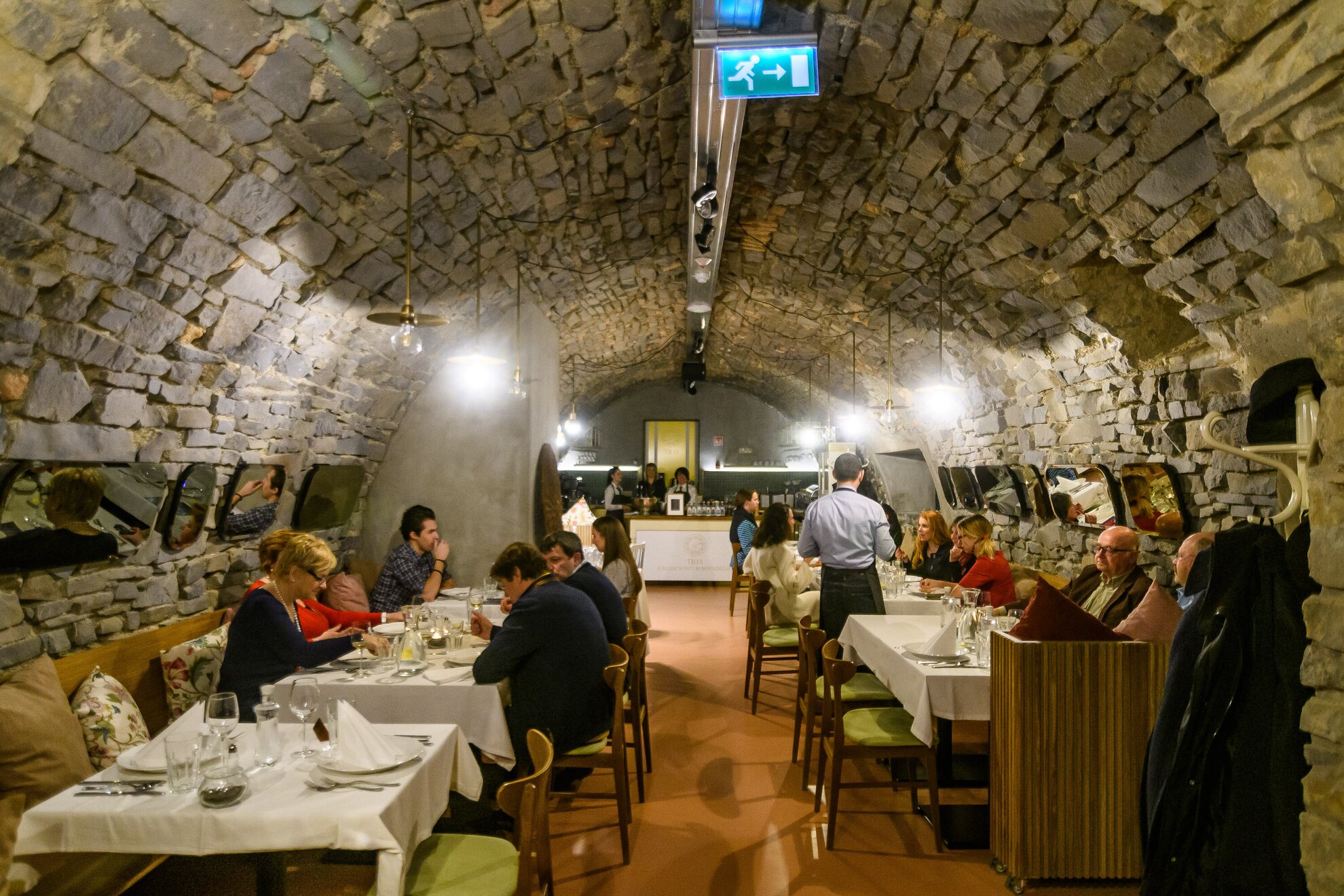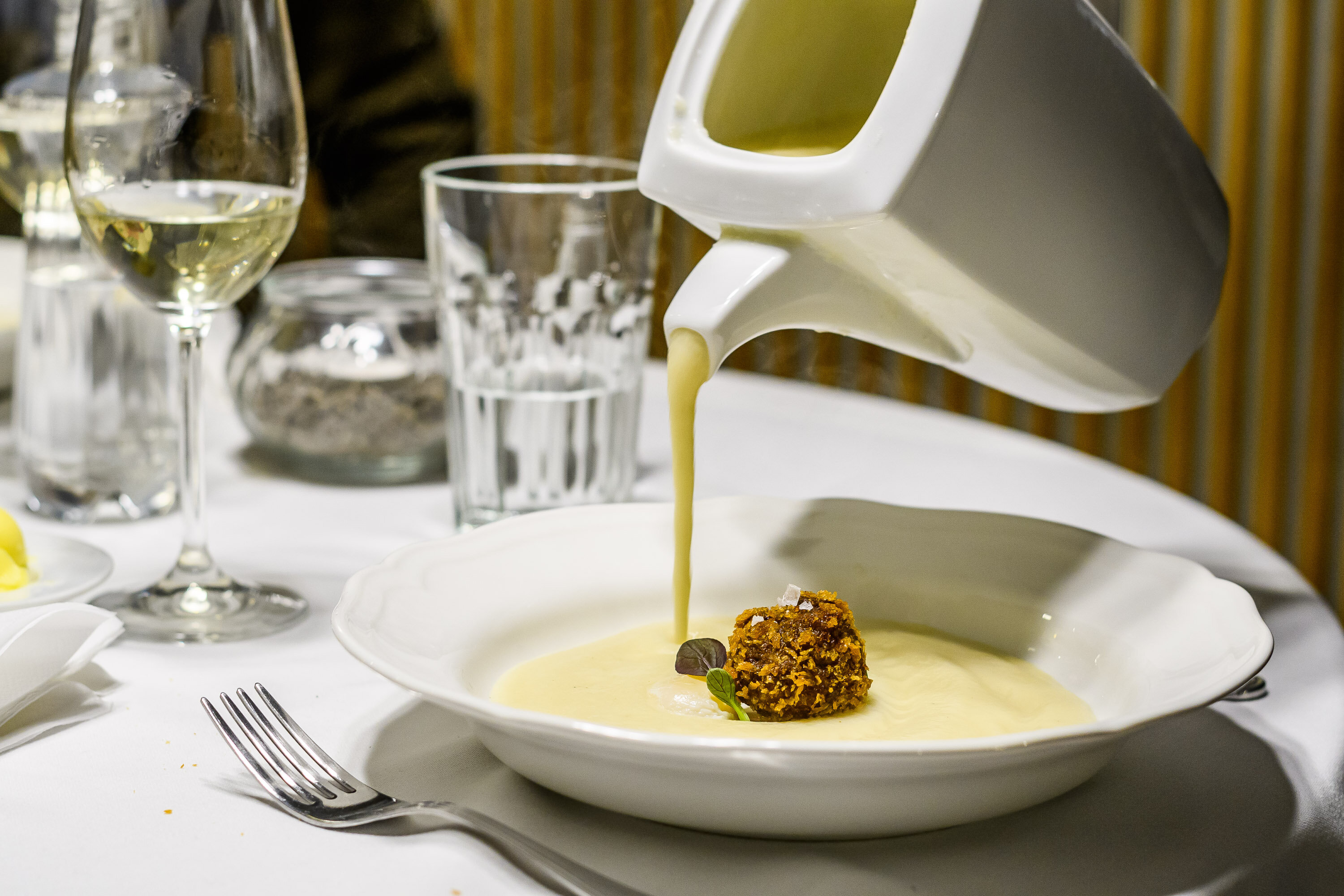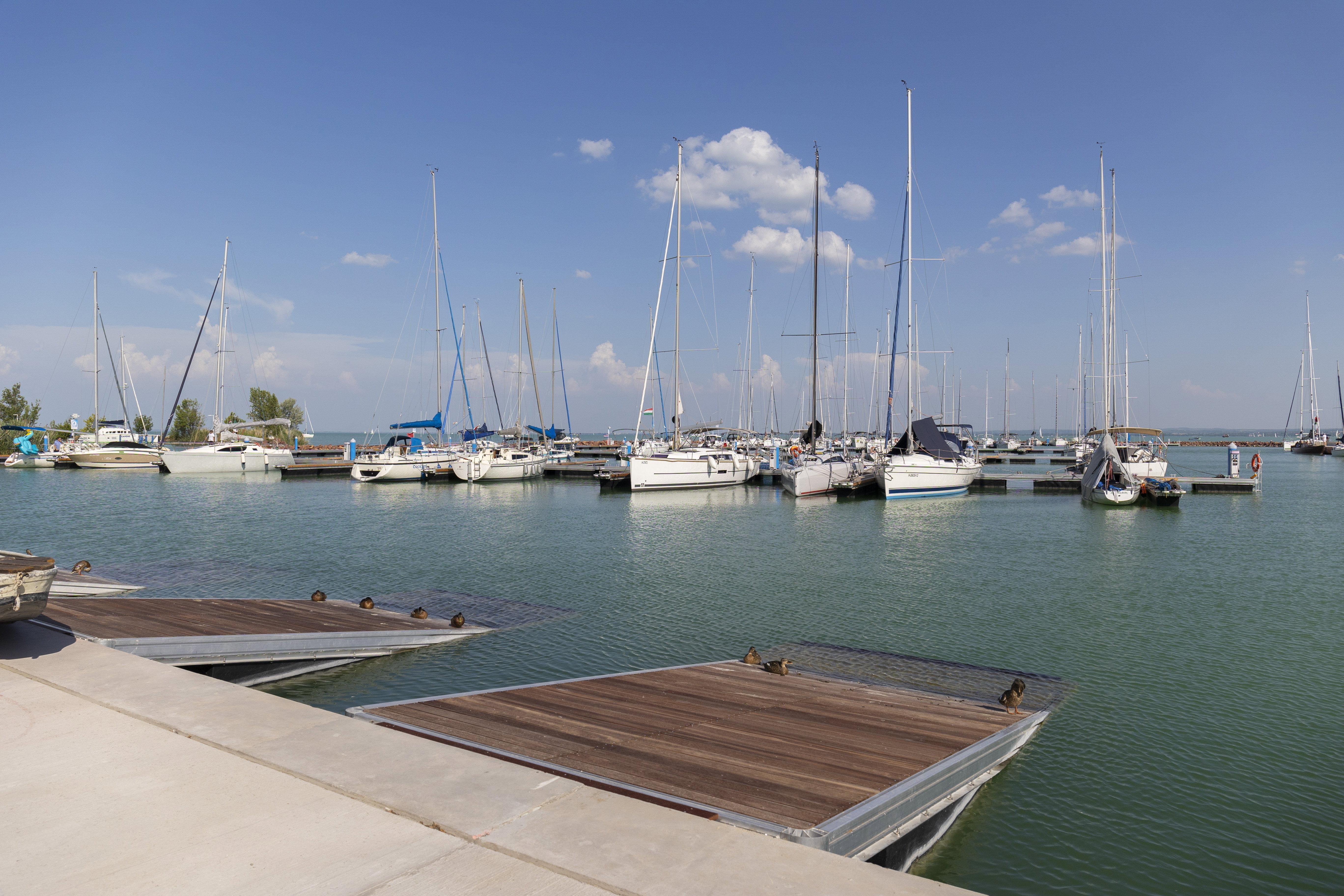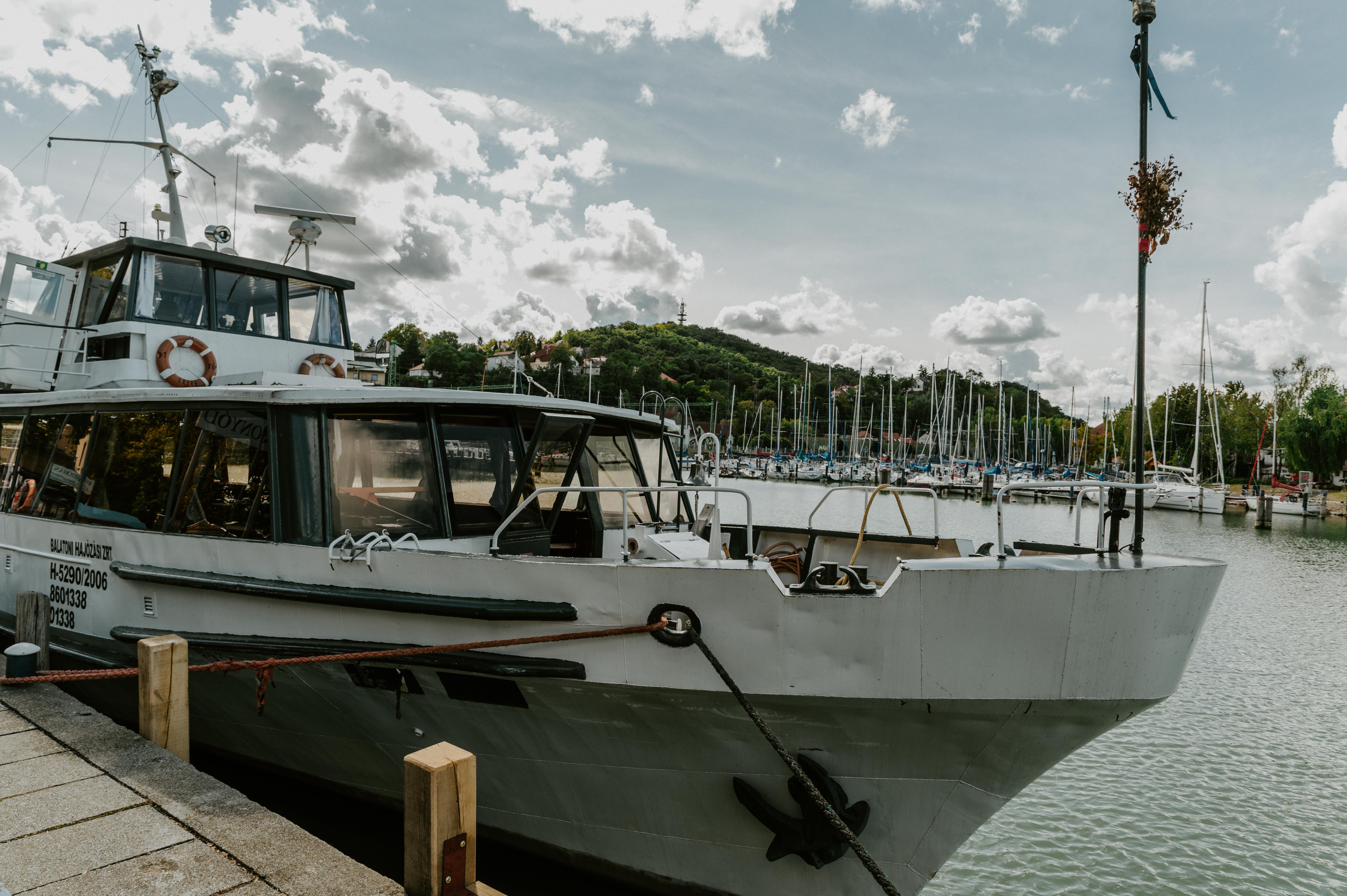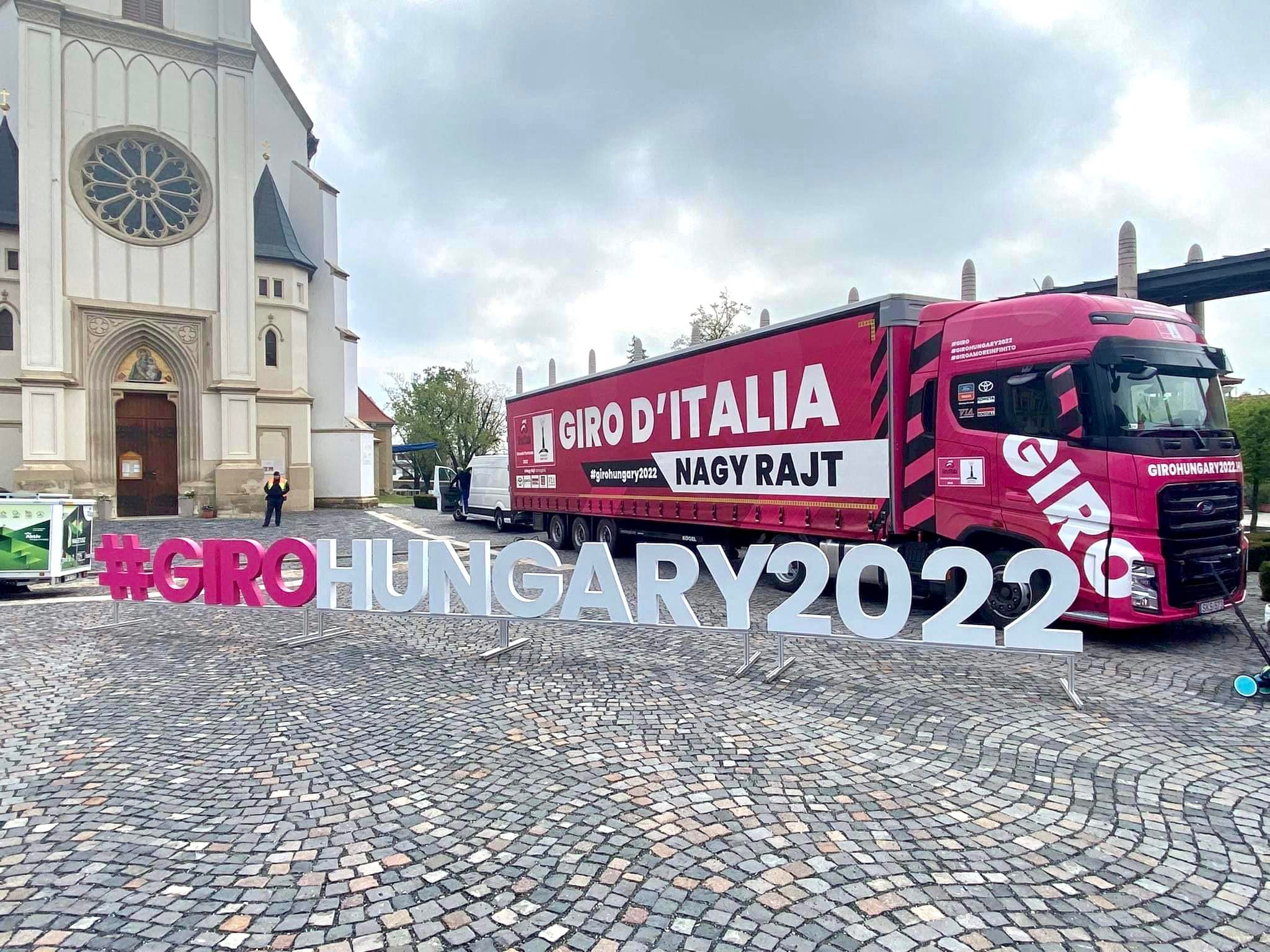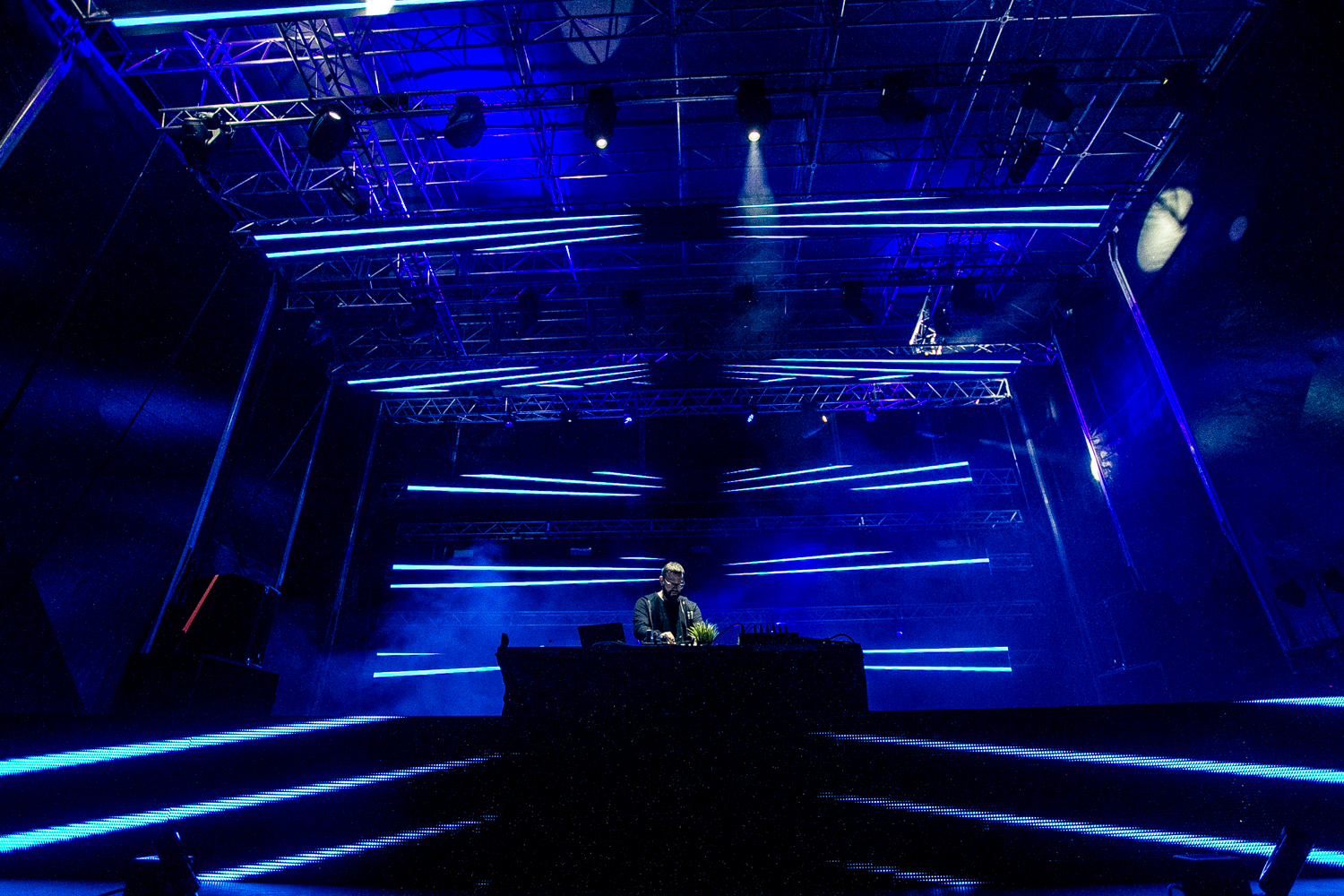Opened at the end of 2017, Hotel Neptun is the perfect symbol of the change that has been taking place in Badacsony’s hospitality industry over the past few years. A number of classic spots, such as Pláne (the former Poharazó) and Kishableány, have been renovated. Now Neptun, the place with the characteristic yellow façade that welcomed famous guests back in the day, has also undergone modernization inside and out, although its upper floor still echoes the glory days.
Currently still called Neptun, the owner of the establishment, Miklós Nagy, not only refurbished the building, but also decided to hire the Tóth-Grubers to come up with a concept for the hotel – the couple previously renovated Villa Fiore in Lesencetomaj, for example, and has worked with many other local businesses before.
“This is only the beginning. We have many obstacles ahead, but we are very dedicated,” says Niki Tóth-Gruber. It’s clear that there’s a soul behind the concept and that it’s well conceived, but there are still many battles to be won in the future.
Mouflon on the menu
The first sign of change is that Neptun, previously operating according to season, has become one of the main venues involved in Badacsony Nyitva (Open Badacsony), a series of events campaigning for quality pastime activities during winter. The hotel emphasizes this move with various events accompanied by wine dinners, as this way customers can experience local produce, wine, and even take advantage of an ice rink alongside dining – and they can do so over the course of one weekend.
“So far, not too many people know about the place, or about what’s exactly going on here, and that’s why we decorated the entire street with lanterns in winter. We have to make it clear with such initiatives that it’s worth negotiating Római út to get here,” says Niki, describing marketing tricks that steer clear of Facebook.
In the long run, Neptun and its renamed wine restaurant (Tilia is Latin for linden) is aiming for four stars, but for now there’s a sense of transition everywhere. The first floor of the hotel received a signature new look from Viktor Csap, a former member of Geppetto studio, who also designed the neighboring Bonvino. The modern interior with its dominant pastel colors and Scandinavian atmosphere is clearly his style.
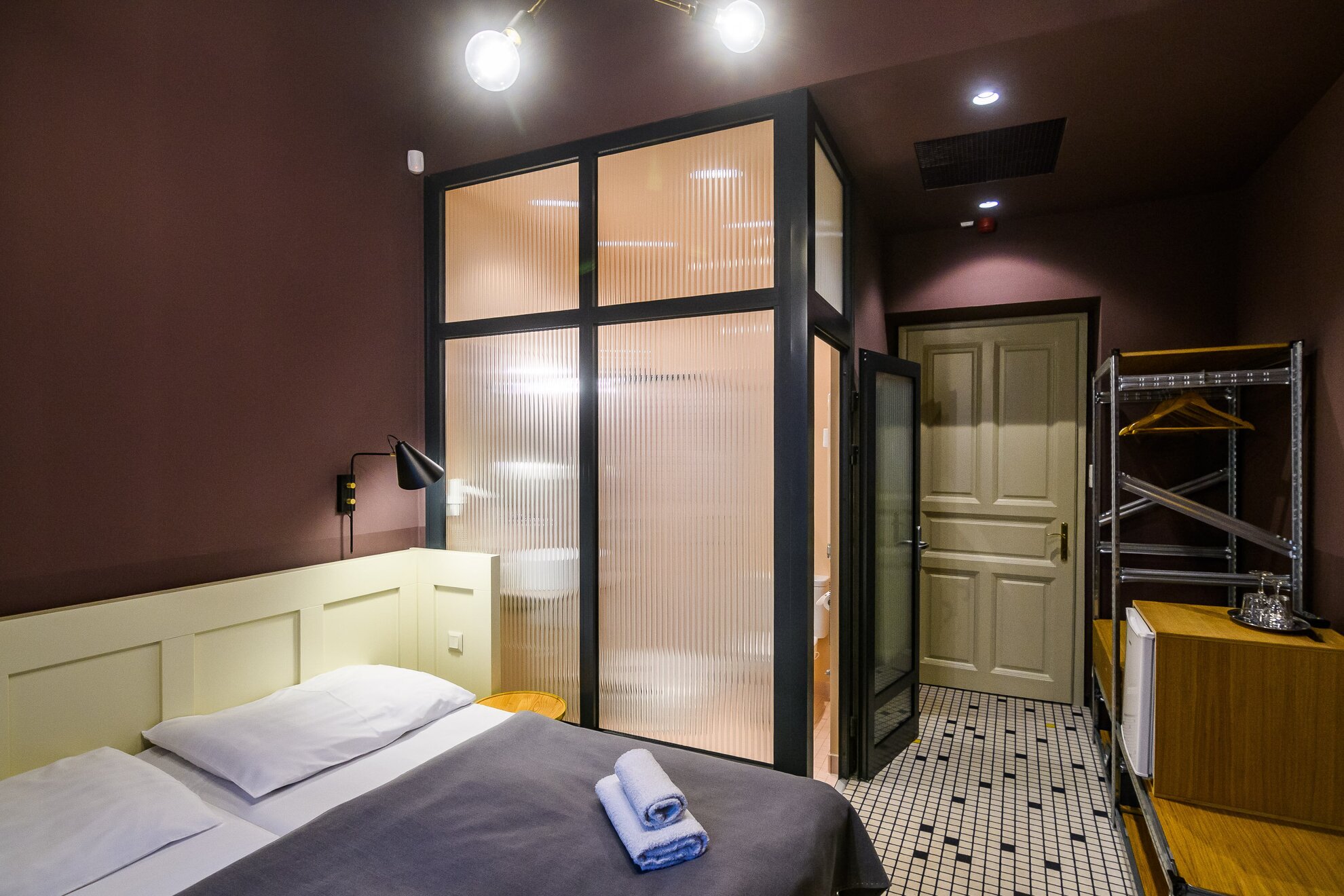
The kitchen has gone through a thorough facelift as well, not to mention the fact that the wine restaurant already enjoys a strong profile thanks to creative chef, Dávid Vári. Committed to game, Vári’s approach dominates the menu, and with dishes such as boar tenderloin (with porcini pappardelle, 3,190 HUF), mouflon sausage (2,490 HUF), and fallow deer shank of venison (with beetroot risotto, 2,990 HUF), it’s clear that Tilia expresses Vári’s vision.
“Some of his ideas are surprising, but we try to give him full rein as this is what makes our menu special,” says Viktor Tóth-Gruber, about the collaboration.
During a dinner event called “A Walk in the Frozen wilderness”, Vári had the chance to experiment more freely with Bakony mouflon, parsnip soup, and Keszthely sturgeon – a highlight of the culinary year in the region. The mouflon wasn’t a surefire hit which is why, for now, it’s best to describe Tilia as an experimental kitchen trying to find its way.
Fortunately, the wine element in the restaurant’s remit isn’t just a throwaway term, as the selection is dominated by local cellars with examples from the Szászi, Bencze, and 2HA wineries.
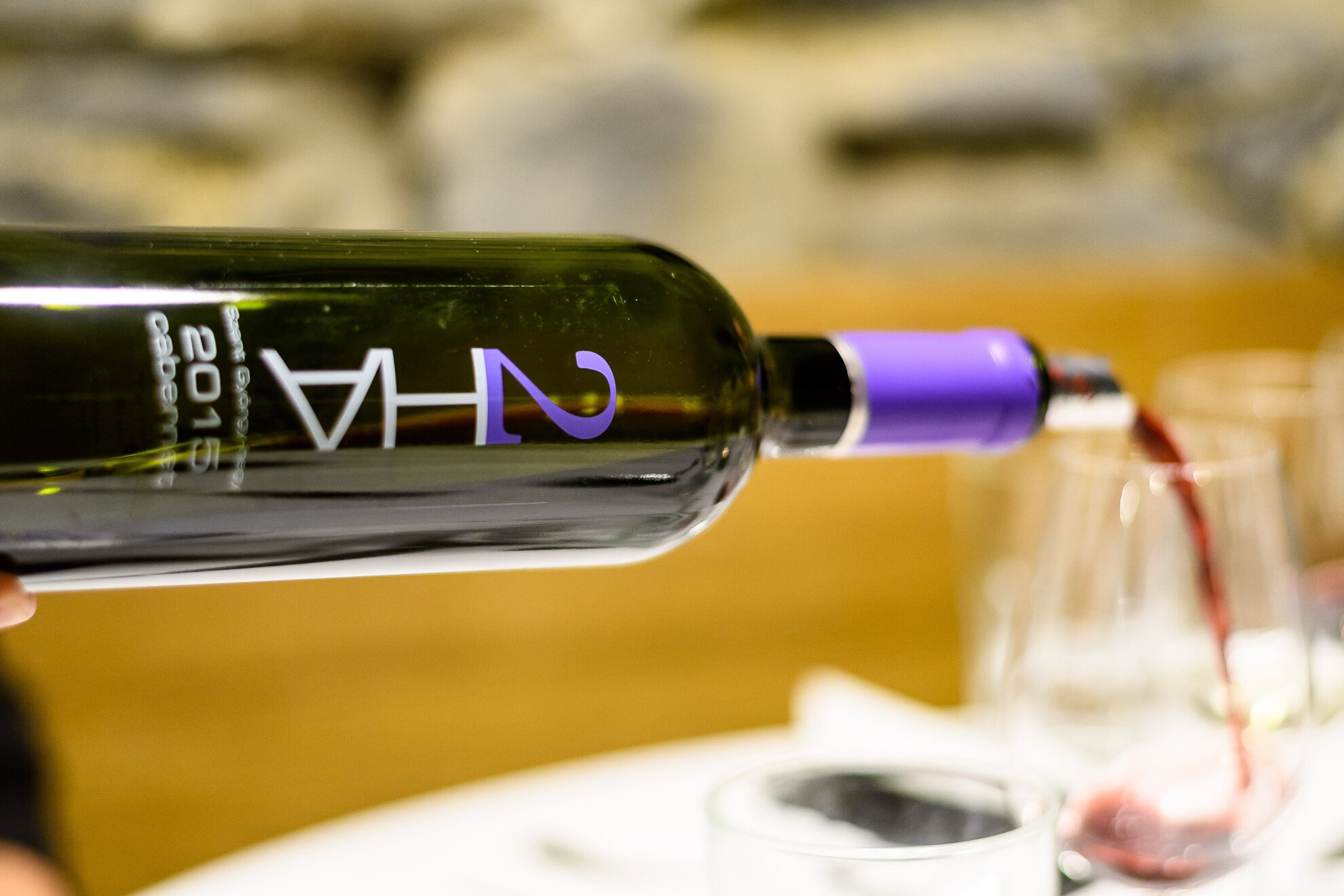
Getting ready for guests
The managers of Neptun are trying to raise awareness of these innovations with various events during the winter, but high season will be a more serious challenge.
The Tóth-Grubers seem determined to succeed, even though some insist that there’s no demand for this kind of mindset – the freshly baked goods from the Búzalelke Bakery for breakfast, the homemade jam, the extra level of care – in Badacsony.
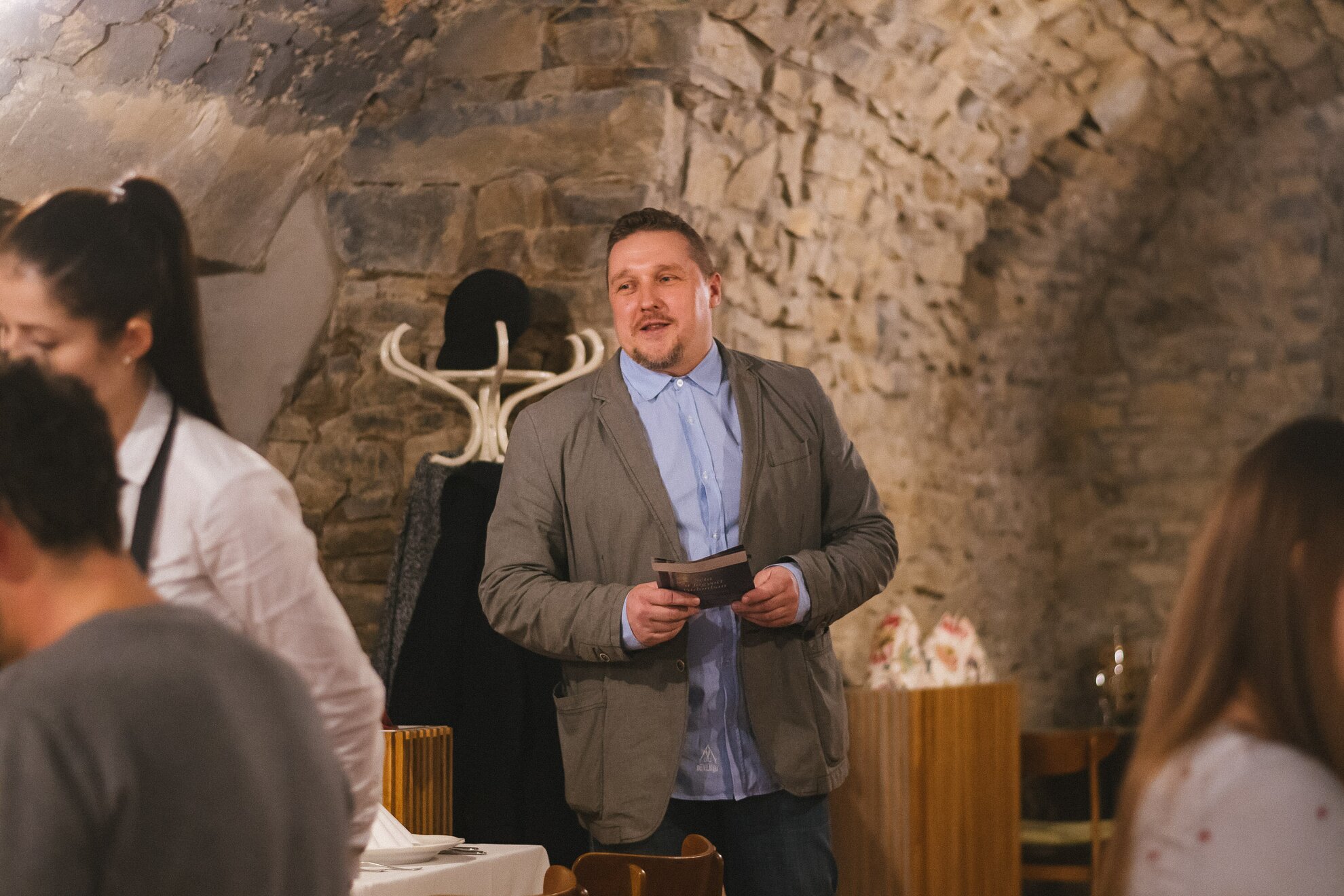
Despite certain hardships (not least a shortage of staff), they can trust in return custom and those curious to see how the changes will pan out. Ultimately, they would like to see how the restaurant will develop, and whether this journey will start or end on Római út.
